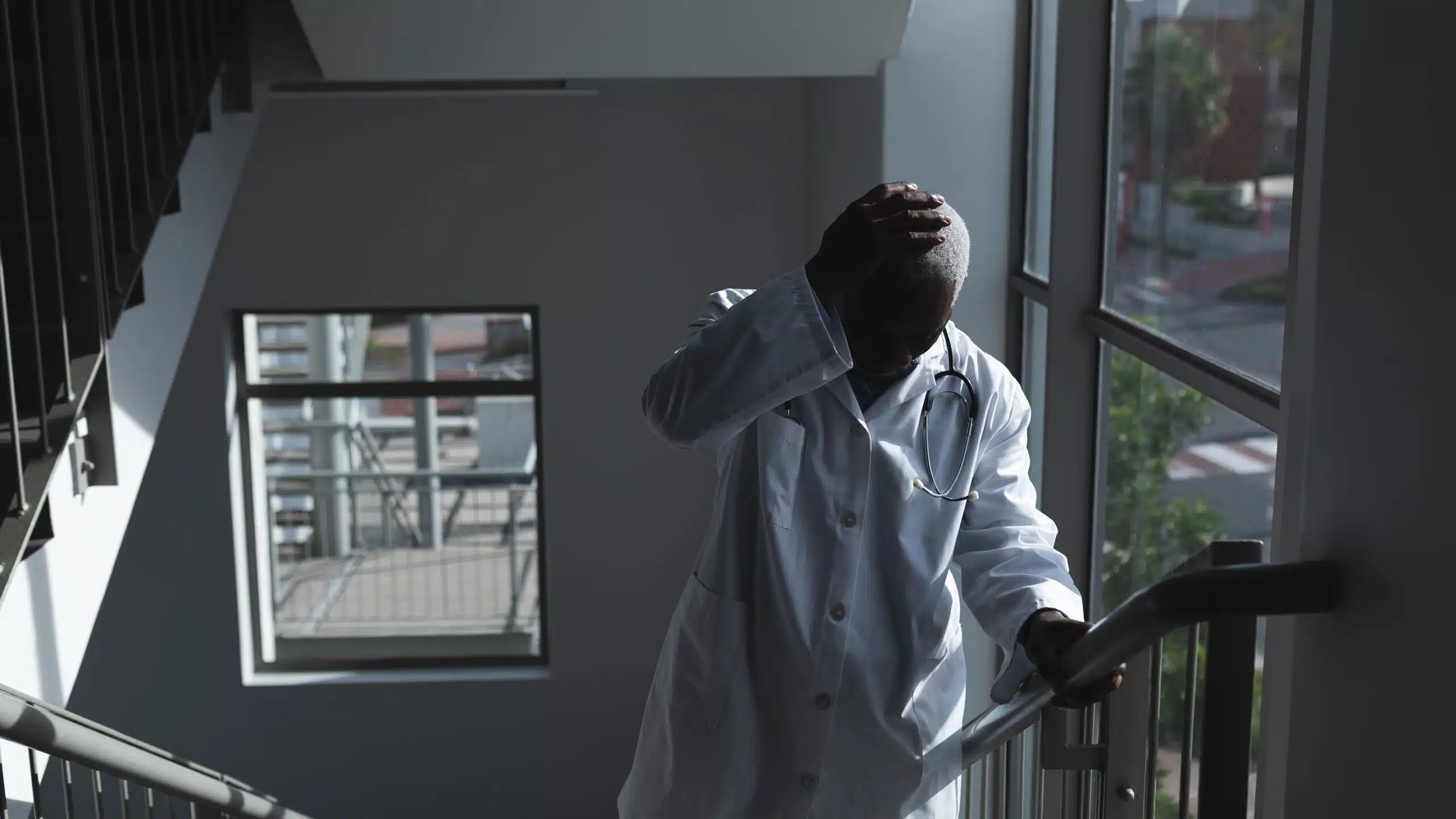
What is moral injury?
Moral injury is the potential outcome of witnessing an event that goes against ones moral beliefs, or participating in the act oneself. Moral injury can also be caused by feeling betrayed by someone you trusted, like a coworker, supervisor, or workplace.
It often results in intense feelings of guilt, shame, disgust, and anger.
What is post-traumatic stress?
Post-traumatic stress (PTS) is a response to traumatic events that one has personally experienced, has learned about happening to a loved one, or has been exposed to. This could include actual or threatened death, serious injury, or sexual violence.
PTS symptoms can include:
- Reliving the event repeatedly in your mind
- Having nightmares
- Avoiding family and friends
- Having trouble sleeping
- Losing interest in enjoyable activities
- Avoiding places and people that remind you of the event
Some people with PTS also experience dissociation. This means that they feel disconnected from themselves, or feel like things happening around them are unreal or unfamiliar.
Though most people who experience a traumatic event will have a strong reaction, many will recover over time. Experiencing trauma doesn’t mean you will develop PTS.


How has the COVID-19 pandemic affected healthcare providers?
- The pandemic has exacerbated symptoms of depression, anxiety, post-traumatic stress disorder, sleep disturbance, and moral injury among healthcare providers.
- Typical coping strategies, such as going to the gym or meeting with friends, were inaccessible due to health restrictions.
- Even before the pandemic, healthcare providers faced moral challenges in their daily work. COVID-19 has added to these stressors and resulted in widespread exposure to working conditions that put healthcare providers at increased risk of moral harm, such as increased workloads and staffing shortages.

Moral injuries
Healthcare providers have faced many challenges during the pandemic, including:
- Working with limited resources
- Witnessing a decline in the quality of care
- Not allowing families to visit the bedsides of patients with COVID-19
These potentially morally damaging events can lead to:
- Feelings of guilt, shame, anger, disgust, or betrayal
- Depression, anxiety, post-traumatic stress disorder
- Suicidal thoughts or behaviour
- Burnout
- A desire to leave the healthcare profession
- Engaging in potentially risky or dangerous behaviours (e.g., speeding, overspending, self-harm)
- Loss of sense of identity
- Changes in religious or spiritual identity
- Altered vision of a just and good world
Physical reactions
- Headaches
- Fatigue/lethargy
Emotional and social reactions
- Feeling numb or detached from other people, activities or environment
- Emotional exhaustion
- Compassion fatigue (a fatigue that occurs when caring for people who are experiencing trauma)
- Feelings of fear, anger and uncertainty
Functional impairments
- Some HCPs may experience functional impairments for several days, including decreased ability to perform daily activities (e.g., performing work tasks, standing for long periods of time, walking long distances), difficulty concentrating, and decreased social skills
